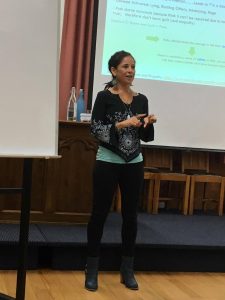Trauma-Informed Education
There are many tamariki in our world who have not had the experiences they need to thrive and are instead simply surviving. All too often, these children are misunderstood and punished for behaviour that is a product of the environment they have been living in. If a child does not receive the nurturing they need during their early years, and does not feel a sense of safety and unconditional love from their primary caregiver, then they grow up with a sense of mistrust in the world and a poor view of themselves, affecting their interactions with others and their ability to function successfully in the world. This is particularly problematic in the current education system, as often these children experience negative consequences for behaviour that they are not choosing to engage in, but have rather been programmed to engage in due to the adversity they’ve experienced; adaptive behaviour that has served to keep themselves feeling safe.
A focus solely on such behaviour only serves to reinforce the sense of shame that these children are already likely to be feeling, and this starts as early as kindergarten. As such we need to be implementing alternative approaches that are based on looking beneath the surface level behaviour to the unmet need lying beneath it. We need to focus on building safe, trusting relationships with these students and trying to understand their stories and the way they function. We need to employ ‘Connection before Correction’ and we need to balance the ‘Two Hands’ of clear boundaries and expectations, with understanding, nurture, and empathy.
One of the leading evidence-based practices for implementing trauma-informed education is PACE (playfulness, acceptance, curiosity, and empathy), developed by Dan Hughes. This is based on a framework called Dyadic Developmental Practice and I am the first qualified practitioner of this practice in NZ. As such, I am passionate about working with schools to better understand the effect of trauma/insecure attachment and how to implement practices such as PACE so that the NZ education system can actively be involved in the worldwide movement targeted at helping disadvantaged children to recover from trauma and be able to access the education they deserve. Together, we can help to create a shift from an otherwise negative life trajectory towards a more positive one, reconnecting children with the core essence of who they are, beneath the behaviour they have likely become defined by. This is our duty as educators of the next generation.

Professional Development
Healing the Inner World of Our Tamariki by Creating Trusting Connections
This Professional Development workshop will help you to better understand the impact of developmental trauma and learn how to implement relational and co-regulatory strategies within the school setting that aim to foster a greater sense of trust and connection, leading to improvements in behaviour over time.
Full Day workshop (6-7 hours) = $1500
Half Day workshop (3-4 hours) = $1000
2 hour presentations = $500
Travel costs additional; 20% deposit to be paid at time of booking
Consultancy
We will work together to address the challenges posed by individual students by developing a plan implementing trauma-informed education, particularly the PACE model, to support school staff in facilitating healing and growth for these children; this includes PACE based scripts and further individualised training, as well as recommendations for trauma-informed learning programmes. This is based on the Professional Development workshop titled ‘Healing the Inner World of our Tamariki’ and is best used as a follow up to this training.
Consultancy = $175/hour
(+ travel costs; meetings, report writing etc)
Testimonials
‘Consistently rated 9 or 10 out of 10 on participant feedback forms!’
“Extremely practical and useful. I want more sessions please!!”
“Thank you so much for your great presentation. I enjoy learning more each time on the workings of our brain and trauma related things”
“Great course. Highly recommend!”
“You were a great speaker, very clear.”
“I learned about how to deal with emotional wellbeing; how I can help as a teacher to support and have a better understanding.”
“I liked the opportunity to talk to others about their experiences.”
“The speed was good. Great short breaks. Great resources given.”
“Loved the info I learned and was explained in a way I understood.”
“Activities, video clips, group work…the variety helps keep you involved”



